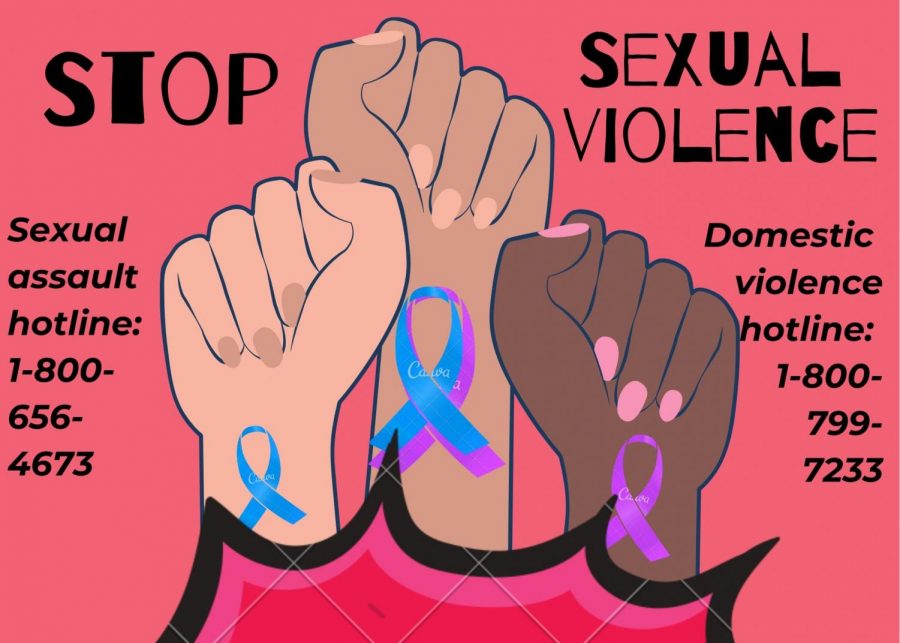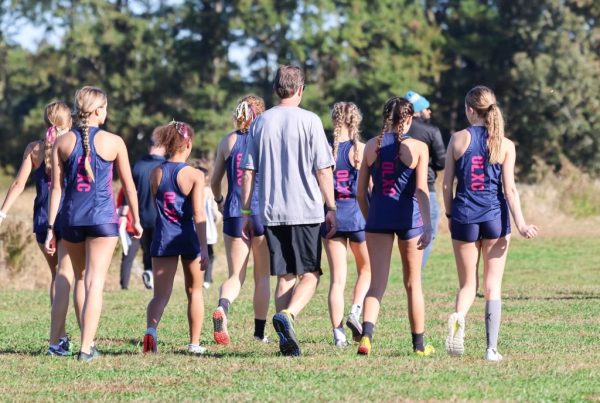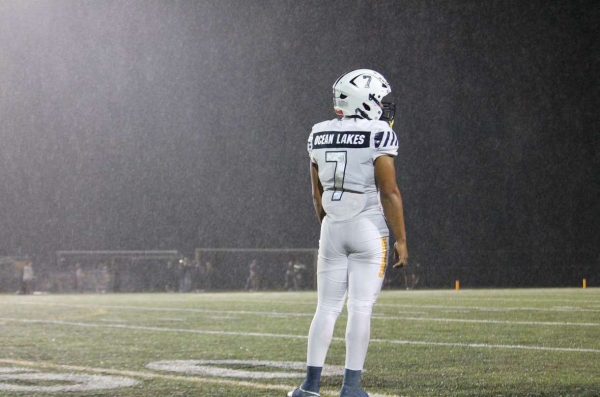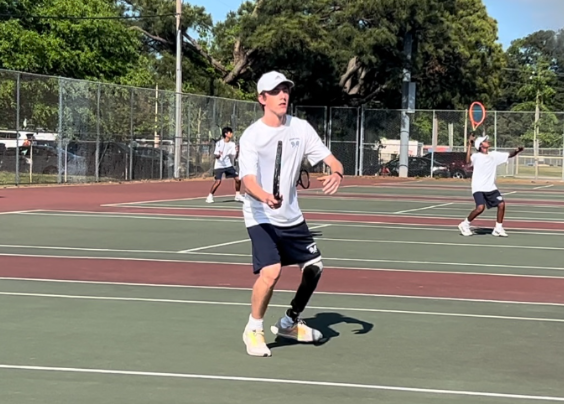“I thought I was just flirting.”
Sexual assault awareness in schools
An infographic that displays the sexual violence ribbons and the domestic violence ribbons.
“I was already in college when my assault happened, and I still wasn’t able to name or understand it at first,” said Caroline Whitlow, class of 2016 alumna and co-founder of Students Against Sexual Violence at James Madison University.
Sexual assault is defined as any unwanted sexual contact or attention. It involves threats, uncomfortable touching, or touching without the person’s consent. The perpetrator forcefully, but not always physically, manipulates and coerces a victim into non-consensual touching of any, according to the Rape, Abuse, and Incest National Network.
“The perpetrator spends time building a relationship which makes it harder for the victim to come forward because the trust was broken,” said Principal Claire LeBlanc.
According to the National Sexual Violence Resource Center, NSVRC, eight out of 10 cases of sexual assault the victim knew the perpetrator, and 63 percent of cases do not get reported. It is one the most under-reported crimes in America.
Usually, an assault occurs when the victim knows the assaulter, so when people say “fight back” or “report it,” there is often a fear of what might happen next. This can lead to an emotional or physical negative effect on the victim such as PTSD, depression, or eating disorders.
“You’re not inviting; you’re just not respected when you say ‘no,’” said LeBlanc.
Sexual assault is not the victim’s fault. Saying no may not always work, but that does not make it their fault. It can happen anywhere, even in schools. The victim may go to the administration or someone that they trust after a sexual assault or harassment incident has occurred.
“Sexual assault can scar you forever, so you have to work with someone, and you cannot internalize it,” said LeBlanc.
According to the Office of Women’s Health, women can feel fear, shame, guilt, or shock after the incident, and these symptoms are normal.
Sexual assault is never the victim’s fault, and even though it can be frightening to talk about, get help or talk about the incident. A victim of sexual assault can report the crime, talk to someone they trust or call the National Sexual Assault Hotline at 1-800-656-4673.
“Anyone can be victimized. Survivors are as diverse as people are, and every survivor should be respected and valued, no matter how they choose to move forward,” said Whitlow.

Aly Schleder is a third-year journalism student and features editor. Aly spends their free time painting or writing. If they aren't at school or at work,...












Wayne Schleder • Apr 3, 2020 at 9:33 am
The article is to the point and concise. It is important that victims of this type need to know they are not alone and it was not their fault for what happened to them. This particular crime is often a he said/ she said event which makes it difficult to prosecute. This should not deter the victims from reporting and talking about their experience. Keep shedding light on this because it is important that we all begin to respect each other more. Good job.